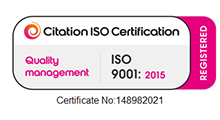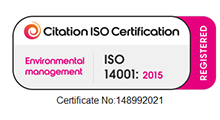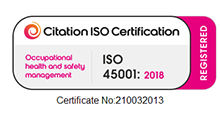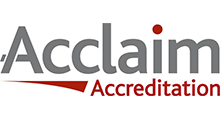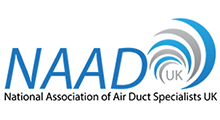The Importance of Regular Extraction Cleaning in Commercial Kitchens
A commercial kitchen is the heart of any restaurant or food-service business. It's a bustling environment filled with constant activity, high heat, and the inevitable build-up of grease, smoke, and odours. Ensuring safe and efficient kitchen operations is a tedious but critical task. Everything from kitchen hoods to ducts and exhaust fans plays an important role in the operations of the kitchen. Nevertheless, keeping surfaces clean and equipment sanitised is critical to the safe operation of commercial kitchens, allowing them to meet health and safety regulations. Regular extraction cleaning not only helps in maintaining the hygiene of the kitchen but also improves the air quality and reduces the risk of fires. It also supports the establishment and maintenance of a safe environment for the people to work in. The importance of regular extraction cleaning cannot be over-stated.
Why is kitchen extraction important for a kitchen?
The kitchen extraction equipment acts like a vacuum cleaner, sucking in the smoke, odours, greasy air and heat that is naturally produced when cooking food and exhausting it to the external atmosphere. By removing these by-products of the cooking process, the kitchen environment can be maintained as a safe and more comfortable place to work in. It is important for the kitchen extraction equipment to be regularly cleaned, noting of the following factors.
- Ensuring hygiene and health: In the commercial kitchens, the food particles, grease, and smoke that are continuously generated become suspended in the air and are then removed by the kitchen’s extraction system. If these extractors are not cleaned regularly, the deposits can become a breeding ground for bacteria and other pathogens. Additionally, if these accumulated deposits fall onto the cooking surfaces, they that may lead to food contamination. This could be a serious health hazard which may lead to not only food related diseases but also tarnishing the reputation of the establishment. Health and safety regulations mandate regular cleaning of kitchen extraction systems. In the situation where any food establishment fails to meet these standards, it can lead to penalties, fines and even the closure of the establishment.
- Improving air quality: An extraction system efficient enough to remove smoke, steam and odours is necessary for maintaining good air quality in the kitchen environment. Poor air quality can not only affect the worker’s health by causing respiratory problems for kitchen staff, but also in the age of open kitchens, good extraction systems prevent in any unpleasant odours to reach the dining area maintaining the customer’s comfort.
- Reducing fire risks: Grease is highly flammable, and its accumulation in the extraction system can lead to devastating fires. As such this should be regarded as one of the most critical reason for regular extractor cleaning. Fire hazards can pose severe risks to staff and customers. Many insurance policies require proof of regular extraction system cleaning as a condition of coverage. Failure to provide this can result in claims being denied in the event of a fire.
- Enhancing Efficiency and Longevity of Equipment: Regular cleaning of extraction system is very necessary for increasing the efficiency and longevity of the extraction system. Efficient systems will face less breakdowns, minimising the cost of repairs and replacements along with lower fuel bills.
- Maintaining Compliance and Reputation: Maintaining a clean extraction system is not just about meeting health regulations; it's also about protecting the reputation of the business. Clean extraction systems not only help in achieving good inspection scores by health authorities, but also helps in building and retaining the customer’s trust that their food is prepared in a clean and hygienic kitchen, which enhances the establishment’s reputation.
Signs to assess that cleaning of kitchen extractor is due.
- The most obvious sign to assess that it is time for the cleaning of the extractor is visible dirt or grease on the insides of the extraction system.
- In the situation when the canopy of duct is visibly stained.
- In the events when the smoke or suspended particles are not getting cleared despite of the venting system being on its highest setting, its high time to schedule the cleaning.
- And a final sign to schedule cleaning is when the motor of the extraction system is making unusual sound or a loud noise during operations.
How often is the cleaning required?
While the frequency of the cleaning of the extractor systems depends on various factors from size of kitchen to the volume and type of cooking that happens in the kitchen, you can determine the optimal cleaning schedule by consulting professional service providers like “The Cleaning Service Group Limited” who provide extraction cleaning services throughout the UK. Typical cleaning frequencies are as follows:
- A cleaning cycle of 3 months for heavy use where the kitchen operates for 12-16 hours per day on an average.
- A cleaning cycle of 6 months for medium use where the kitchen operates for 6-12 hours per day on an average.
- A cleaning cycle of once a year for light use where the kitchen operates for 2-6 hours per day on an average.
Regular extraction cleaning is essential for maintaining a safe, efficient, and compliant commercial kitchen. It ensures cleanliness, enhances air quality, minimizes fire hazards, boosts equipment efficiency, and upholds the establishment's reputation. By following best practices and scheduling regular cleanings, commercial kitchens can function smoothly, offering a secure and pleasant environment for both staff and customers. Investing in routine extraction cleaning is not only a regulatory necessity but also a crucial element for operating a successful food service business.
We're committed to your privacy. Find out more.





